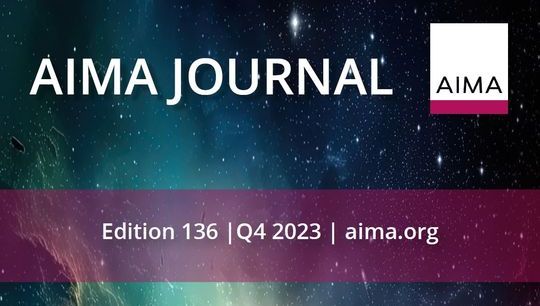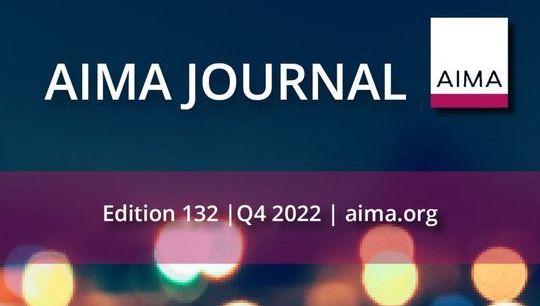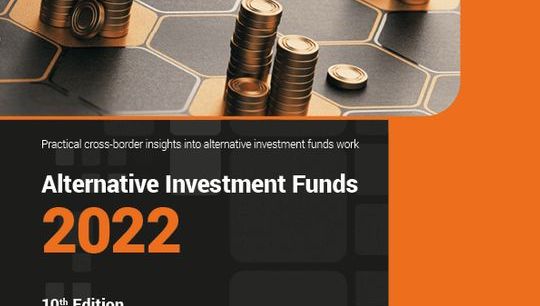The impact of COVID-19 on Jersey's investment funds industry
By Simon Hopwood & Stephanie Edge, Maples Group - Jersey
Published: 01 June 2020
On 9 May 2020, Jersey marked the 75th anniversary of its liberation at the end of World War II. The world now faces a different battle against an invisible enemy, the coronavirus ("COVID-19"), which is causing a devastating impact on human life and health, and the global economy.
This article considers the impact, challenges and issues faced by the Jersey funds industry as a consequence of COVID-19.
Emergency Laws
In the battle against COVID-19, Governments worldwide, including the States of Jersey, introduced emergency laws to address public health concerns and imposed non-essential travel restrictions, physical distancing and lockdown measures ("COVID-19 measures"), primarily to protect human life and health, contain the rapid global spread and reduce the burden on healthcare systems.
The States of Jersey has also relaxed regulations to facilitate the redeployment of healthcare staff, the use of alternative premises for healthcare and established an emergency fund for the crisis.
COVID-19 measures have had a substantial impact on Jersey's funds industry, but it is difficult at this stage to assess the overall financial impact.
Business Continuity
COVID-19 has presented unprecedented challenges, forcing Jersey funds businesses to implement their business continuity plans ("BCP") and focus on the health and safety of management and staff, including their physical and mental well-being.
Business and working practices have completely changed with the majority of businesses fully transitioning to remote working operations. This has led to an increased use of technology for internal and external meetings with video conferencing proving crucial to maintaining contact and conducting day-to-day business.
Policies and procedures should be reviewed and adapted to support these operational changes and risk assessments should be conducted on corporate governance, risk management, financial resources (including capital and cash flow), outsourcing, employees, IT and cybersecurity.
Data and Cybersecurity
Due to remote working and an increased reliance on technology, IT systems, servers, networks and data are more at risk for cyberattacks.
IT systems, networks and security should be closely monitored and recorded. Risk assessments should be conducted to assess loss of data, privacy breaches, cybersecurity and IT system and network failures.
Marketing
COVID-19 measures have restricted fund raising activities and virtual meetings have replaced investor face-to-face meetings.
Offering documents should now include disclosure and risk warnings on COVID-19's impact on investment objectives, valuations, liquidity and past performance.
Existing fund documentation should be reviewed and updated with COVID-19 statements included in periodic reports and accounts.
Investor Take-On
In 2019, the Jersey Financial Services Commission ("JFSC") revised its AML / CFT handbook to allow the use of electronic identification ("E-ID") as an alternative to original 'wet-ink' documents to show evidence of identity from electronic sources, including phone apps capturing information, documents and photos, as long as certain identified risks are considered and effectively managed.
With COVID-19 measures, it has been difficult to follow the usual identification procedures where investors are unable to have 'face-to-face' meetings or provide 'wet-ink' certified copy or notarised documents. Jersey fund managers and administrators have been able to use E-ID where permitted by their policies and procedures. Policies and procedures should be reviewed to include the flexibility to use E-ID, appropriate risks identified, and risk management procedures included.
Corporate Governance
Jersey-based funds and managers are usually 'managed and controlled' in Jersey to maintain tax residency. If a manager conducts 'fund management business' in Jersey, it must be 'managed and directed' in Jersey to comply with economic substance.
Constitutional documents typically require meetings to be quorate in Jersey and restrict telephone or video conference attendance from a country prejudicing tax residency.
Due to COVID-19 measures, Jersey funds and managers have made changes to their usual operating practice for holding quarterly board meetings or ad hoc emergency meetings. If it is not practical to amend constitutional documents, alternate directors can be appointed.
The Jersey Comptroller of Revenue issued guidance to reassure companies who were making temporary adjustments to their normal operating practices to mitigate the effects of COVID-19, that it would not regard them as failing to meet the economic substance test.
A company that usually holds board meetings in Jersey will now be allowed to temporarily hold virtual meetings for directors to attend. Additionally, the Jersey tax residency of a foreign company managed and controlled in Jersey will not be affected by any temporary changes.
Constitutional documents should be reviewed to check meeting procedural requirements and that the tax authority for the country of a particular director's residence has issued similar guidance.
Regulatory
Recognising the challenges faced by Jersey's funds industry, the JFSC has provided a level of flexibility and taken a pragmatic approach.
Application forms for forming new entities are submitted using the Registry's online portal. The Registrar will accept documents signed by electronic signature, scanned signature or by email confirmation. Certificates and approvals are emailed or made available on the portal.
For Jersey regulated businesses including funds and managers, the JFSC has extended regulatory filing deadlines, allowing three months for audited accounts and 20 days for fund statistics returns.
The JFSC encourages regulated businesses to deal openly and co-operatively with it and will require them to take a proactive approach to business continuity and raise any concerns or risks at an early stage.
Liquidity Management
Due to the extreme market volatility, some Jersey open-ended funds are experiencing liquidity issues as concerned investors submit redemptions requests. Jersey funds and managers are having to consider 'tools' available to them to manage liquidity, taking account of the interests of exiting and remaining investors and any reputational damage risks. The liquidity tools might include the following:
- Redemption gates to enable a fund to control the timing of redemptions, allowing assets to be sold in an orderly manner to fund redemptions;
- Suspending redemptions for a period of time to prevent a 'run' on the fund;
- Distribution in specie of assets made by a fund to satisfy investors' redemption requests, avoiding the need to sell assets and pay sale costs;
- Redemption charges deducted from redemption monies payable to investors, representing a pro-rata share of the asset sale costs; and
- Side pocket entity to which illiquid or 'hard to value' assets are transferred, issuing shares or interests to relevant investors.
A fund's liquidity should be regularly reviewed and monitored. Constitutional and offering documents should also be reviewed to check if liquidity tools are available.
Contracts
The financial impact of COVID-19 may cause Jersey funds or their managers, investors, lenders or service providers, who may be experiencing liquidity or cashflow concerns, to review whether their contracts can be terminated or their performance delayed or discharged. A contract may include the following clauses:
- Force majeure clause: Relieves the parties from performing their contractual obligations when an act of God or certain circumstances beyond their control arises, making performance impracticable, illegal or impossible; and
- Material adverse effect ("MAC") clause: Allows a party to terminate a contract where a specified event, condition or change is (or reasonably expected to be) materially adverse to the operations, business, assets or financial condition of party or asset.
Investors might seek to delay a capital call payment, or see if they can be excused or excluded from an investment. Key service providers might look to delay or be excused from performance, vary service levels or even terminate their services agreement.
A buyer might look to terminate a sale and purchase agreement relying on a MAC clause where the asset value has substantially fallen. If a financial covenant or MAC clause in a loan agreement is breached or triggered, the lender will ask a fund to remedy (if capable) the breach and, in default, take enforcement steps. Insurers could refuse cover or to pay a claim, seeking to rely on a force majeure or MAC clause.
Whether COVID-19 triggers these clauses will depend on the precise wording in the relevant contract which should be carefully reviewed.
Transactions
Due to COVID-19 restrictions, as an alternative to 'wet-ink' signatures, the use of electronic signatures to sign documents for completing transactions has become more prevalent.
Under the Electronic Communications (Jersey) Law 2000, if parties agree, a contract may be formed by electronic communication and signed using an electronic signature. If statute requires 'wet-ink' signatures, electronic signatures will suffice as long as the method used identifies and shows approval of the signatory.
Some documents cannot be signed electronically, such as a registerable power of attorney or a power of attorney to be given by an individual, which are required to be signed in the presence of a witness, which is difficult with physical distancing.
Constitutional documents and documents being signed, should be reviewed to check if electronic signatures are allowed and for any power of attorney to consider.
Lessons Learned
Jersey's funds industry will reflect on the impact of COVID-19. Businesses will evaluate their BCPs and IT systems in light of working practice changes and consider if any lessons can be learned and improvements made. It will be important to review relevant documentation and, where appropriate, update to cover the issues and matters highlighted in this article.
Maples Group Jersey
Maples and Calder (Jersey) LLP is the Maples Group's law firm in Jersey. As part of an international organisation with 18 locations worldwide, our lawyers and professionals have seen how many of the issues impacting Jersey have similarly impacted other jurisdictions where we operate. We have therefore gained a unique insight into legal and regulatory trends which will benefit our Jersey clients.








